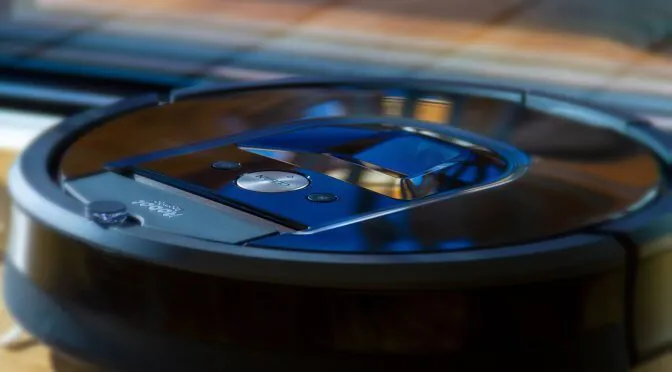The robotic vacuum market is home to products from both 100-year-old electronics vendors and more specialized companies that were established in only the past 10-20 years. Although these vacuums are about 20 years old now, it’s only in recent years that they’ve become affordable for and practical for most consumers. Today’s robotic vacuums use cameras, AI, and other technology to find their way around the home and banish dust and dirt, and manufacturers are competing to offer the best combination of features and price.
Top robotic vacuum cleaner manufacturers
Dyson
Dyson is a newer entrant to the robotic vacuum market. The company released its first model, the Dyson 360 Eye, in Japan in 2014 and globally in 2016. It followed this up with the next vacuum in the series, the Dyson 360 Heurist, in 2019.
Founded in 1991, Dyson has a reputation for its high-quality vacuums, bladeless fans, and other appliances such as hand dryers, heating, and lighting.
ECOVACS Robotics
ECOVACS produces robotic vacuums under its DEEBOT line, which it first launched in 2007. It offers many different vacuums with various features under this line, and falls under the low end of the price range for this type of product.
The company began in China in 1998 as a vacuum cleaner OEM called TEK Electrical Company, and rebranded in 2006 as a manufacturer of household robotic devices. Aside from vacuums, the company produces robotic window cleaners, air purifiers, and shopping assistants. Its products are available in over 60 countries around the world.
Suggested reading: The Future of Robotics in Japan: Are Robots Ready to Replace Humans?
Electrolux
Electrolux is the creator of the world’s first robotic vacuum cleaner, the Trilobite. The company exhibited a prototype in 1996 and officially launched the machine in 2001. It recently re-entered the robotic vacuum market with the Pure i9, developed with the expertise of Anova, a smart kitchen brand that Electrolux acquired in 2017.
Founded in 1919, Electrolux is a global appliance company that sells over 60 million household and professional products in more than 150 markets yearly. The company is headquartered in Stockholm, Sweden, and offers a range of large and small appliances including dishwashers, fridges, air conditioners, cookers, and more.
Eufy
RoboVac is Eufy’s line of robotic vacuums, a budget brand with a wide range of options for consumers to choose from. The series launched in 2016 and has quickly become a popular choice on the market.
Eufy is a division of Anker Innovations and was founded in 2016. It produces smart appliances and other connected devices for the home, including its Genie smart speaker, lightbulbs, plugs, and scales, along with home security products.
Suggested reading: Top 5 Companies in the Smart Home Appliances Industry
ILIFE
ILIFE offers two robotic vacuum cleaner lines: the A series is made for cleaning carpets, while the V series is made for vacuuming and mopping hard floors. They are mid-range products with fewer features than the high-end options on the market, but a more affordable price tag.
Based in Shenzhen, China in 2007, ILIFE now operates in over 30 countries around the world. Along with its robotic vacuums, the company also produces the W series of floor-washing robots and the H series of cordless vacuum cleaners.
iRobot
iRobot is the creator of the Roomba, one of the first and most well-known robotic vacuum cleaners. Founded in 1990, the company launched its first Roomba product in 2002, and has been developing new models in that line ever since.
Aside from Roombas, iRobot develops technologies for mapping and navigation, as well as human-robot interaction. The company creates smart home-related products and solutions both independently and through strategic partnerships. It supports early-stage connected hardware companies that are developing technologies of interest to iRobot, and also runs an educational outreach program for students interested in STEM fields.
LG Electronics
LG’s robotic vacuum offerings include the R9 and the Hom-Bot, both boasting AI features. The Hom-Bot includes home security features as well as vacuum capabilities. Founded in 1958, LG produces home appliances, home entertainment products, and other electronics. The company controls over 100 subsidiaries globally.
Panasonic
The RULO is Panasonic’s entry into the robotic vacuum market. The company is relatively new to the scene, releasing the first iteration of the RULO in 2015, with its newest model coming out late last year. The RULO was the first robotic vacuum to utilize a triangular design, although it’s no longer the only one.
Panasonic was founded in Japan in 1918 and incorporated in 1935. It now consists of over 580 consolidated companies and 270,000 employees, and its business segments include appliances, life solutions, connected solutions, automotive, and industrial solutions.
Philips
Philips’ current offerings in the robotic vacuum category are its SmartPro series, which is available internationally. The company was established back in 1891 as a lighting and electricals manufacturer, but has since moved to focus primarily on health technology and home care. It is headquartered in Amsterdam and provides products and services such as diagnostic imaging, patient monitoring, and health informatics, as well as in consumer health products.
Samsung Electronics
Samsung produces the POWERbot line of vacuum cleaners, offering several different models with various price points and features. The Korean company was established in 1969 and produces consumer electronics, communications technology, and other electronic devices.
Learn more about the robotic vacuum market
Technavio anticipates significant growth from the global robotic vacuum cleaner market over the next 5 years, with a CAGR of 18% and incremental growth of $3.7 billion. APAC will lead the global market, with the region’s rapid urbanization helping to drive demand for these vacuums. Discover more insights into this industry with Technavio’s market research report.



